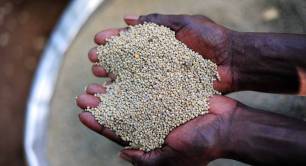The 'social intrapreneur' taking on typhoons and housing crises
There is a strong hypothesis building in private, public and social sector circles that there are growing numbers of ‘social intrapreneurs’ at large – people developing projects to drive social and environmental change from within big business. They do not typically sit on CSR floors and their mission isn’t ‘greenwash’ or 'social good' glossing. Instead they are setting out on testing journeys to use private resources in areas of social and environmental need.
Richard Northcote is one such maverick. He works for Bayer MaterialScience, and heads up its communications, sustainability and public affairs. His current efforts are geared towards building affordable typhoon resistant homes in the Philippines, and he'll be speaking at Good Deals, the UK's social investment conference on 24 and 25 November about tackling social and environmental challenges from within corporate structures.
Bayer MaterialScience produces many of the materials that go into everyday products including cars, fridges and most famously the official FIFA World Cup football. It has been valued at almost 10 billion euros and is also working hard on its sustainability, having developed energy-saving materials that can be used in cars and housing. But how do you sway a hugely profitable plastics business towards building affordable housing in the Philippines?
In an interview with Pioneers Post, Richard Northcote gives an inside look at his work, leveraging the expertise of Bayer MaterialScience in partnership with consulting firm Volans and international charity Habitat for Humanity, to create access to affordable housing in the Philippines and beyond.
Pioneers Post: How did the socio-environmental projects that have surfaced within Bayer MaterialScience come about?
Richard Northcote: Five years ago a group of us got together to talk about our work, and said it’s all very well, but it’s really only the top 20-30% of society that gets the benefits of the products we’re making. What happens to the people further down the social pyramid? We started looking into using these materials to stimulate economic growth at the base of the pyramid as opposed to just benefiting those at the top of it. And we came up with four core product offerings, which include giving farmers access to cold storage, developing fruit dryers to boost livelihoods, converting waste into materials that can be used in products like furniture and affordable housing solutions.
PP: The fourth project around providing affordable housing, in the context of a global housing shortage, seems like an odd mission for a chemicals company?
RN: Affordable housing solutions was actually the one project we thought would be slow in getting off the ground and now it has jumped to the forefront of our work.
It was an idea that a colleague of mine had; she’d been in India looking at business models on a course with a European University. She came back very moved by what she saw in the slums of Mumbai, like many people are, and she started asking, "why aren't we doing anything to contribute here?" She decided that we had to do something, and that’s how it all started.
Around 7 million houses need to be built in the Philippines. And then there’s another million that need to be built in Malaysia by 2020. India has just announced that they have to build 72 million houses by 2022. So the market is absolutely huge. The need to build fast, and come up with new construction technologies is something that the private sector can help with.
PP: So how is this affordable housing project playing out from within Bayer MaterialScience?
RN: We’re working very closely with Habitat for Humanity (an international development charity that aims to break the cycle of poverty by eliminating poverty housing and homelessness) and have just finalised an agreement with them to build 1,000 houses in Tacloban in the Philippines, which was hit by Typhoon Yolanda last September.
Tacloban was absolutely devastated by the typhoon. It destroyed nearly half a million houses and made millions of people homeless. What the government is saying now is that in order to continue to build houses in areas prone to typhoons, buildings need to be able withstand 260 km/h winds. We came up with a foam cement. When we put that through all the wind tests it passed, and that was a door opener for us.
This will be the first of 5,000 houses we’re seeking to build. We’re doing the first trial of 1,000 then we’ll move to 5,000 and eventually 30,000 houses.
The Malaysian government is also very interested in our technologies. We’re developing a range of houses there that meet the specific requirements of individual communities. Indonesia also has a huge problem with homelessness, and they want to start building upwards. I’ve got my own issues with that, I come from Glasgow and was around in the 60s when there were a lot of social housing problems with high-rise flats. I’m not sure if these are the best answers. But we’ll work with the technology and look at the sociological aspects afterwards with psychologists, sociologists and various NGOs.
PP: Is there a big team working on this?
RN: We started with a group of volunteers, and this has been the evening work for most of us, but it has grown and now I have ten full time positions working on this. An Indian colleague of mine leading the project on the ground is spending his life flying around Asia. I also travel around a lot meeting with governments. It’s incredible, I never though five years ago I’d be sitting here talking about this, but here I am so that’s good.
PP: How do you push a social project like this through in a big business?
RN: The success of the last five years of talking to NGOS and working with governments has shown me that you need patience and trust for this, you need to be recognised for what you’re doing and you can’t be in it for PR. I think the reason it’s still going is down to absolute stubbornness on my part, I just won’t let it go.
My chief executive is very committed to what we’re trying to do, he is the one that is allocating it budget on an annual basis, he’s as committed to this as I am, once you get that buy in it’s great. And if I look right across the board to varying degrees everyone is supportive.
I think the big threat to the project is if I step on the toes of existing business. From an internal perspective that is always the concern. Are you going to screw up our original intention and business model? The answer is no, and I need to convince people I am not interested in selling volume, I am interested in making a societal difference.
It’s very easy to get side tracked in a large corporation and it’s very difficult to convince business associates within your organisation that this is a worthwhile opportunity because it’s not CSR. It is about coming up with new business models that allow you to have a bigger impact, which is what we’re trying to do.
|
Richard Northcote's top tips for making a difference from within big business:
|
Richard Northcote will be speaking at Good Deals, the UK's social investment conference, about investing in new models of capitalism and driving change from within big business, check out the programme here.



![[file:field_file_image_alt_text]](https://www.pioneerspost.com/sites/default/files/styles/node-teaser/public/images/hdr/article/14564001777_7557a404bb_o.jpg?itok=z_-dfBJk)